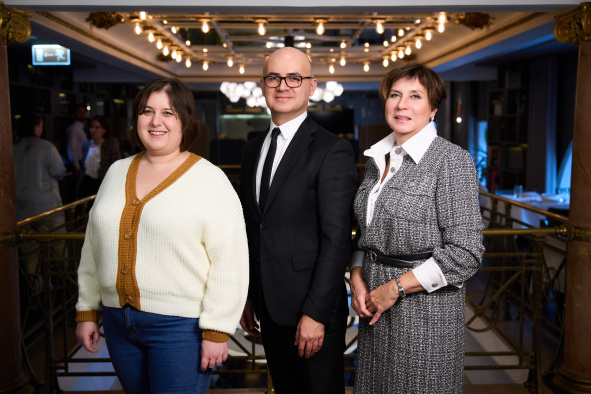Labeling dietary supplements brings manufacturers out of the shadows

The increase in demand for dietary supplements, which has been observed in recent years, has provoked an increase in the number of counterfeit products. Thus, in 2022, about 45% of dietary supplements, or more than 460 million packages, turned out to be counterfeit or imported into the country illegally. Labeling of dietary supplements, which became mandatory for all suppliers from October 1, is designed to solve this problem. This program is already demonstrating its effectiveness: the number of companies registered in the state labeling system turned out to be 3 times greater than previously in the Unified Register of State Registration Certificates [1] .
Over the last five years, the dietary supplement market has annually shown stable growth of almost 20%, and according to experts, its volume by the end of 2022 amounted to about 120 billion rubles [2] . An increase of 15% is also predicted by the end of this year. Experts explain this by saying that Russians have begun to pay more attention to their health and pay attention to the nutrients they need.
Elena Nevolina, Executive Director of the Association of Consumer Health Industry: “This year Rambler conducted a survey of 200 thousand Russians about their attitude towards dietary supplements, which showed that 81% believe in the benefits of dietary supplements. More than half of the respondents answered that they were ready to spend up to 3 thousand rubles a month of the family budget on dietary supplements. It is noteworthy that 53% of respondents buy dietary supplements in pharmacies, despite the existing popularity of online trading, thereby treating them as important health products.”
This surge in demand for dietary supplements, unfortunately, has also provoked an increase in the number of fake and counterfeit products. New retail rules and the abolition of regulations governing the circulation of dietary supplements, the sale of these products through marketplaces, when the origin and quality of the goods are difficult to control, also aggravated the situation. Ultimately, the consumer suffered: low-quality dietary supplements can not only be useless, but also cause harm to health. According to a study by the Center for Strategic Research, every third tested dietary supplement contained an increased dosage of active elements, every fourth was not registered, and every fifth contained hazardous substances prohibited by the technical regulations of the EAEU. This became a key prerequisite for the development and implementation of the project for mandatory labeling of dietary supplements.
Lyubov Andreeva, Рead of the dietary supplements department of the “Pharma” product group of the Center for the Development of Advanced Technologies (CRPT) : “Preliminary results of the implementation of digital labeling of dietary supplements are already noticeable: more and more new manufacturers are registered in the “Even Sign” system, they have begun to submit reports to the tax authorities and Rosstat, i.e. we can say that the market is leaving the gray zone. Now in our system there are already 845 manufacturers of dietary supplements, of which 738 are importers. The leader in the volume of labeled products is the Novosibirsk region - 31% of the total share of labeled dietary supplements. Next comes Moscow – 23%, Altai Territory – 20% and St. Petersburg.”
As noted in the CRPT, at the time the experiment on labeling dietary supplements began in May 2021, it was supported by large suppliers of such products. Many of them joined the pilot project and took an active part in working group meetings to make it possible to prepare the system for large-scale implementation.
Hakan Erturk , CEO of Solgar in Russia and the CIS: “ We are seeing global growth in the dietary supplement market. Over the past 10 years, it has increased from 600 billion to 1 trillion dollars. Such significant growth cannot occur uncontrolled. Especially when it comes to products that have a direct impact on human health. For our part, we support government initiatives aimed at combating the gray market and took an active part in the pilot labeling project. Our products are represented in 70 countries around the world, and we note that Russia is the first country to implement such a necessary and important project. For us as a manufacturer, the labeling did not make any significant changes in our work: we had time to prepare well for it. It will also not affect the cost of our products, which are presented mainly in pharmacies.”
It is expected that the labeling of dietary supplements will contribute to the exit of illegal suppliers of dietary supplements from the market, as well as the development of those who are accustomed to working according to the rules, and will have a positive impact on the entire market. Experts estimate the annual increase in revenue of legal producers to 5.4 billion rubles, and the volume of additional revenues to the state budget at 2 billion per year.
Completely unlabeled products must disappear from the market by September 1, 2025. Until this moment, pharmacies will be able to sell previously purchased goods that have not yet been labeled.
[1] https://xn--80ajghhoc2aj1c8b.xn--p1ai/info/news/rynok-badov-nedootsenili-markirovka-pomogla-vyyavit-v-2-8-raza-bolshe-importerov/
